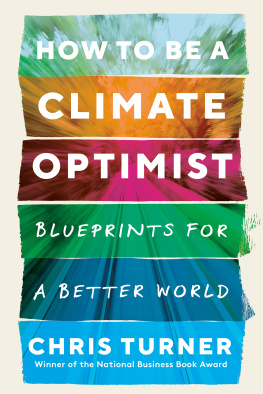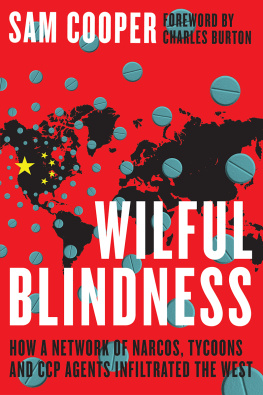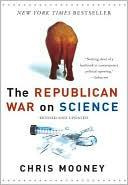For the Turner4YYC campaign team
Copyright 2013 by Chris Turner
All rights reserved. No part of this book may be reproduced, stored in a retrieval system or transmitted, in any form or by any means, without the prior written consent of the publisher or a licence from The Canadian Copyright Licensing Agency (Access Copyright). For a copyright licence, visit www.accesscopyright.ca or call toll free to 1-800-893-5777.
Greystone Books Ltd.
www.greystonebooks.com
Cataloguing data available from Library and Archives Canada
ISBN 978-1-77100-431-2 (pbk.)
ISBN 978-1-77100-432-9 (epub)
Editing by Nancy Flight
Copy editing by Lesley Cameron
Cover and text design by Jessica Sullivan
We gratefully acknowledge the financial support of the Canada Council for the Arts, the British Columbia Arts Council, the Province of British Columbia through the Book Publishing Tax Credit, and the Government of Canada through the Canada Book Fund for our publishing activities.
MARCH OF
THE LAB COATS
The View from the Street and the Lab
SPRINGSUMMER 2012
THE PROTEST march that snaked through the streets of Ottawa on the morning of July 10, 2012, was, in some respects, a standard affair. The marchers carried placards and chanted slogans, a roster of speakers made high-minded speeches, the police redirected traffic and kept a watchful eye. Under a bright blue sky, the protesters marched from the Ottawa Convention Centre past the Chateau Laurier to Parliament Hill, drawing the curious interest of the odd tourist or passerby, but mostly tromping down the streets of the capital with order, purpose and calm.
The only obvious signs that this was a protest unique in the history of Canadian public life were the crisp white clinical lab coats on dozens of the protesters and the geeky twist they gave to a familiar chant.
What do we want?
Science!
When do we want it?
After peer review!
A young woman carrying a scythe and wearing the black hooded robe of the Grim Reaper led the procession, followed by a clutch of pallbearers bearing a prop coffin aloft. The march had been billed The Death of Evidence. It had been organized and was largely peopled by scientistsfield researchers, lab rats, graduate studentsand it was, as far as anyone marching was aware, the first time their ranks had ever assembled to stage a protest on Parliament Hill.
Scientists are by professional tradition and often by general disposition a cautious, reserved lot. They place the highest virtue on reasoned argument and cloistered study, proceeding from the core belief that scientific evidence, objectively gathered and impartially analyzed, must always trump opinion and argument and shouted slogan in the establishment of what is true and reasonable and which courses of action best serve the public interest. They conduct their public discourse as much as possible in the meticulous, technical language native to peer-reviewed scientific journals. That the scientists in Ottawa had taken their conversation to the streets, amplified it, reduced it to the crude exigencies of a placards sloganthis all spoke to a catastrophic decline in the harmony of their usual dialogue with Canadian government.
In Canadian public life, there had for generations been a sort of implicit understanding between scientists and politicians, between those who gathered and analyzed the data and those who used the resulting studies and white papers and policy briefs and committee testimonials to enact legislation. It went roughly like this: federal law and public policy would always have recourse to the best available evidence. Any number of political persuasions and points of view could be represented in the public discourserabid socialists and staunch libertarians, rapacious capitalists and bleeding-heart liberals, Tories and Grits, Dippers and Greensbut scientific evidence existed outside this cacophonous arena of competing opinions. The parameters of the entire debate were established by observable, verifiable, peer-reviewable reality, not by political expediency or strategic advantage. Even if this evidence-based social contract was not always honoured in full, it had never been unilaterally negated. Politicians might elide inconvenient facts or omit problematic details in the name of short-term gain, but they werent permitted to dismiss the scientific method itself as irrelevant to the formulation of policy. At some point you had to acknowledge the basic facts of the situation. Didnt you?
Since Stephen Harpers Conservatives had first formed a government in 2006, the pact between evidence and policy had eroded and crumbled and then finally given way at some fundamental levelthe one that sent scientists marching in their lab coats on Parliament Hill. The process had been slow and sporadic at firstesoteric programs cut here and there, experts and their studies forced into the custody of media handlers, their conclusions massaged to corroborate talking points dictated by the Prime Ministers Office. The campaign intensified in fits and starts through the minority years, with rumblings about discounted evidence and silenced scientists accompanying the elimination of the Office of National Science Adviser, the cancellation of the long-form census, and the tabling of a sweeping crime bill that went against decades of research.
In the first year of Harpers majority, though, the scientific communitys concerns turned quickly to outrage. Seemingly every other day through the spring of 2012, news broke of another slashed budget or shuttered research facility as the Conservatives rolled out Bill C-38, their omnibus budget bill. Cloaked in the plain cloth of financial necessity, the bill seemed intent on rewriting the whole contract between scientists and policy-makers.
It was staggering, Dalhousie University biologist Jeffrey Hutchings told me. It seemed like every week there was something new happening. And it got to the point where as a Canadian scientific community, not only were we thinking whats going to happen next, but there was so much, we didnt actually know how to respond. And it really felt like a boxer whos just been punched so many times, its all you can do to stand up.
On July 10, Hutchings made his stand. He was in Ottawa for a conference on evolutionary biology, an event co-sponsored by the Canadian Society for Ecology and Evolution. Hutchings, the societys president, was a co-host, and there was plenty for him to attend to inside the conference hall. But the marchs organizers had been in touch, encouraging him to participate. It wasnt an easy decision. He was wary of the planned Death of Evidence march, concerned that his involvement might be interpreted as political advocacy or the pursuit of personal gain. I dont want to be advocating for anything other than the communication of science, he said. So I was a little reluctant.
A chat with a journalist just a few days before the march finally swayed him. On the appointed morning, Hutchings left the conference centre and stepped out onto Colonel By Drive in his crisp white lab coat, melting into the ranks of his white-coated colleagues, all of them joined together in wordless solidarity with the protests simple assertion that scientific evidence was sacrosanct, that the final arbiters of truth toiled not in the House of Commons but in the laboratory. Phalanxed by placards, chants echoing in their ears, the nations foremost evolutionary biologists began their march on Parliament Hill.
The placards themselves told a shorthand version of the story. One near the front of the ranks bore the marchs semi-official motto: NO SCIENCE/NO EVIDENCE/NO TRUTH/NO DEMOCRACY. Another put it more bluntly: STOP HARPERS WAR ON KNOWLEDGE.
The marchers had first assembled outside the convention centre because a good many of them were, like Hutchings, in town for the conference. The First Joint Conference on Evolutionary Biology was one of those insular academic affairs whose symposium titles spoke in language guaranteed to exclude all but the fully initiated
Next page











